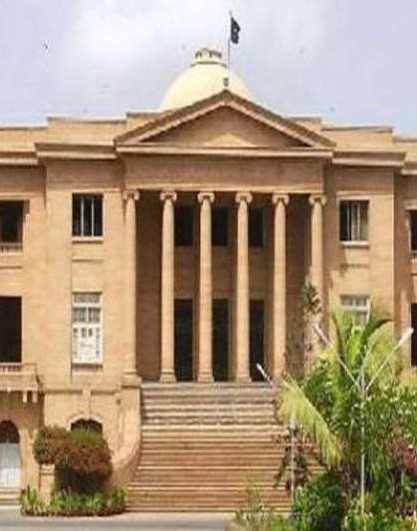Introduction
The Sindh High Court (SHC) is a superior court of law in the province of Sindh, Pakistan. It was established in 1906 as a subordinate court. It was granted the status of a High Court in 1927. SHC is located in Karachi, the largest city and provincial capital of Sindh. Also, the SHC is the highest judicial forum in the province. Besides, it is responsible for hearing appeals and petitions against decisions of lower courts in civil, criminal, and constitutional matters. The court has a rich history and has played a significant role in the development of the legal system in Pakistan.
History and Establishment
The history of the Sindh High Court dates back to the British colonial era in India when it was part of the Bombay Presidency. In 1927, it was upgraded to a High Court and the first Chief Justice was Sir Lancelot Sanderson. Initially, it had jurisdiction over the province of Sindh and the princely state of Bahawalpur. However, after the partition of India in 1947, it became the highest court in the province. It has played a significant role in the development of the legal system in Pakistan. It heard important cases that had a significant impact on the country’s legal and political landscape.
Jurisdiction of Sindh High Court
The High Court of Sindh has wide jurisdiction. It hears cases in several areas of law, including civil and criminal cases, writ petitions, appeals against decisions of lower courts, and constitutional petitions. Also, it plays a crucial role in ensuring justice and upholding the rule of law in the province.
Composition and Structure of Sindh High Court
The SHC is composed of a Chief Justice and 28 judges. These judges are appointed by the President of Pakistan in consultation with the Chief Justice of Pakistan and the Governor of Sindh. It has a hierarchical structure with divisions, benches, and circuits. The court has two main divisions, the Principal Seat in Karachi and the Sukkur Bench. It also has several circuit courts working in different parts of the province. The court’s structure enables it to handle a large number of cases. Further, it ensures the timely delivery of justice in a fair manner.
Functions and Powers of Sindh High Court
The Sindh High Court has a wide range of functions and powers that are essential for upholding the rule of law in the province of Sindh. These include hearing and deciding cases, judicial review, protecting fundamental rights, administrative functions, disciplinary proceedings, and contempt of court. These powers further enable the court to protect the rights of citizens, maintain the integrity of the legal system, and uphold the law.
Important Cases heard by the Sindh High Court
The Sindh High Court has heard and decided numerous important cases in its history. These include the Benazir Bhutto murder case, Mukhtaran Mai case, missing persons’ cases, Karachi violence cases, anti-terrorism cases, and the release of illegally detained individuals. These decisions have definitely set important precedents and helped to strengthen the legal system in Pakistan.
Appeals and Writs in Sindh High Court
The Sindh High Court has the power to hear and decide appeals and writs, which are essential for ensuring justice in the province of Sindh. The court can hear both civil and criminal appeals. It can also either uphold, modify or overturn the decision of the lower court. Writs are legal orders which the court issues to enforce the fundamental rights of citizens and ensure that government authorities act within the bounds of the law. These legal remedies further enable citizens to challenge unlawful detention, illegal actions by government authorities, and other violations of their fundamental rights.
Role of Sindh High Court in Dispensing Justice
The Sindh High Court plays a crucial role in dispensing justice in the province of Sindh, Pakistan. It has the power to hear and decide a wide range of civil and criminal cases. Also, it ensures fair trials, protects fundamental rights, review government actions, set legal precedents, and promotes the development of the legal system. Moreover, the court ensures that cases are heard fairly, fundamental rights are protected, and the rule of law is upheld, contributing to the development of a just and equitable society.
Challenges and Issues faced by Sindh High Court
The Sindh High Court, like other institutions in Pakistan, faces several challenges and issues in carrying out its duties and responsibilities. These include a backlog of cases, limited resources, corruption, political interference, security threats, and access to justice. The court has taken steps to improve access to justice, such as providing free legal aid to indigent litigants and establishing special courts for women and children. However, addressing these challenges will require sustained efforts from the judiciary, government, civil society, and other stakeholders.
Future of Sindh High Court and Judicial Reforms
The future of the SHC has a close link to ongoing efforts to reform the judiciary in Pakistan. There are several key reforms that could shape the future of the court. These reforms are judicial appointments, case management, judicial training, access to justice, transparency, and accountability, and judicial ethics and integrity. Also, these reforms are essential to ensuring the independence, efficiency, and accessibility of the judiciary. In this way, the court can promote the rule of law and enhance the delivery of justice to all citizens.
Conclusion
In conclusion, the Sindh High Court plays a crucial role in the judicial system of Pakistan. The court has a rich history and broad jurisdiction. Also, it has heard several important cases that have shaped the legal landscape in the country. Despite facing several challenges and issues, the court has taken steps to improve its operations, enhance access to justice, and promote the rule of law.
For more useful topics, visit blogtoeducate.com






